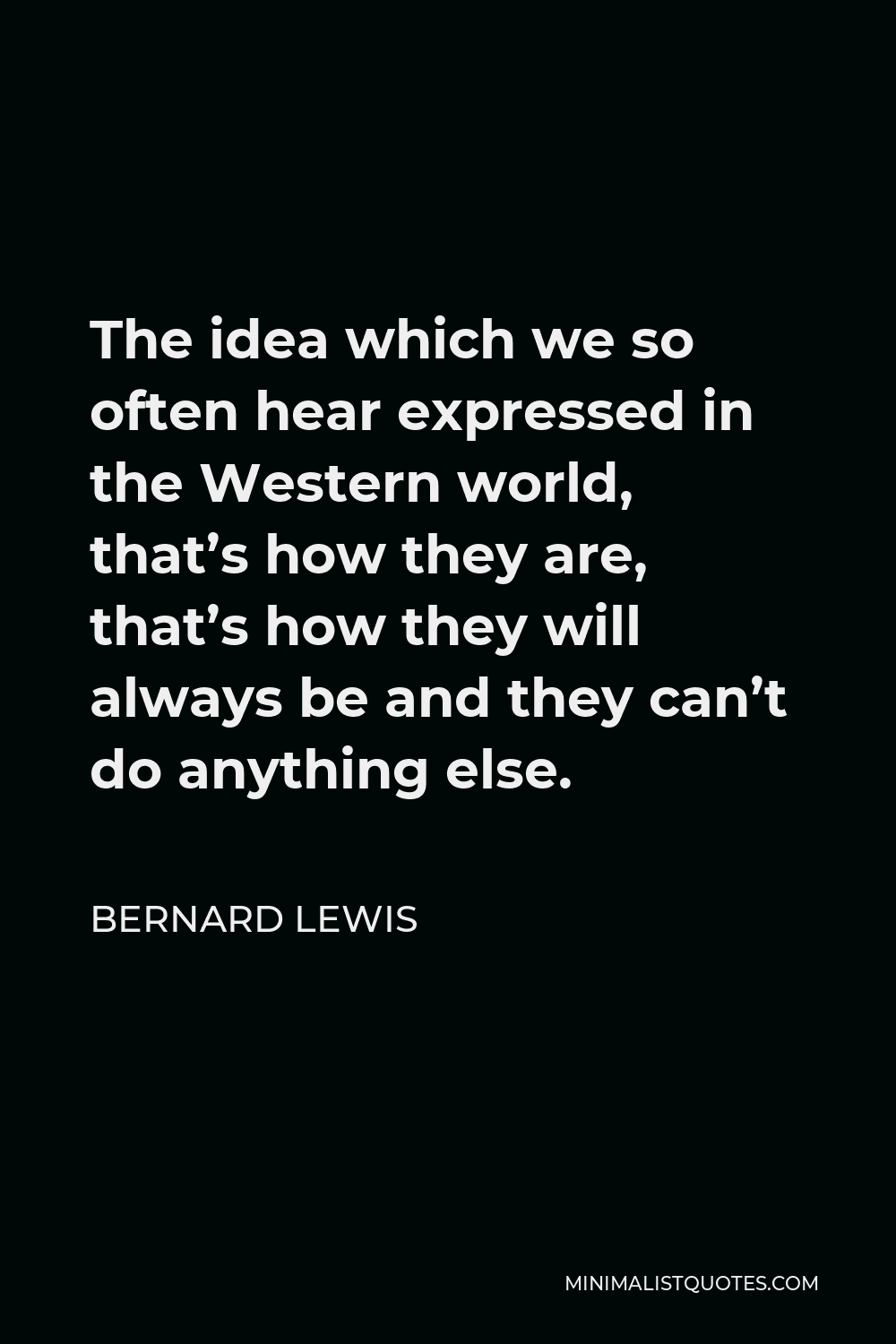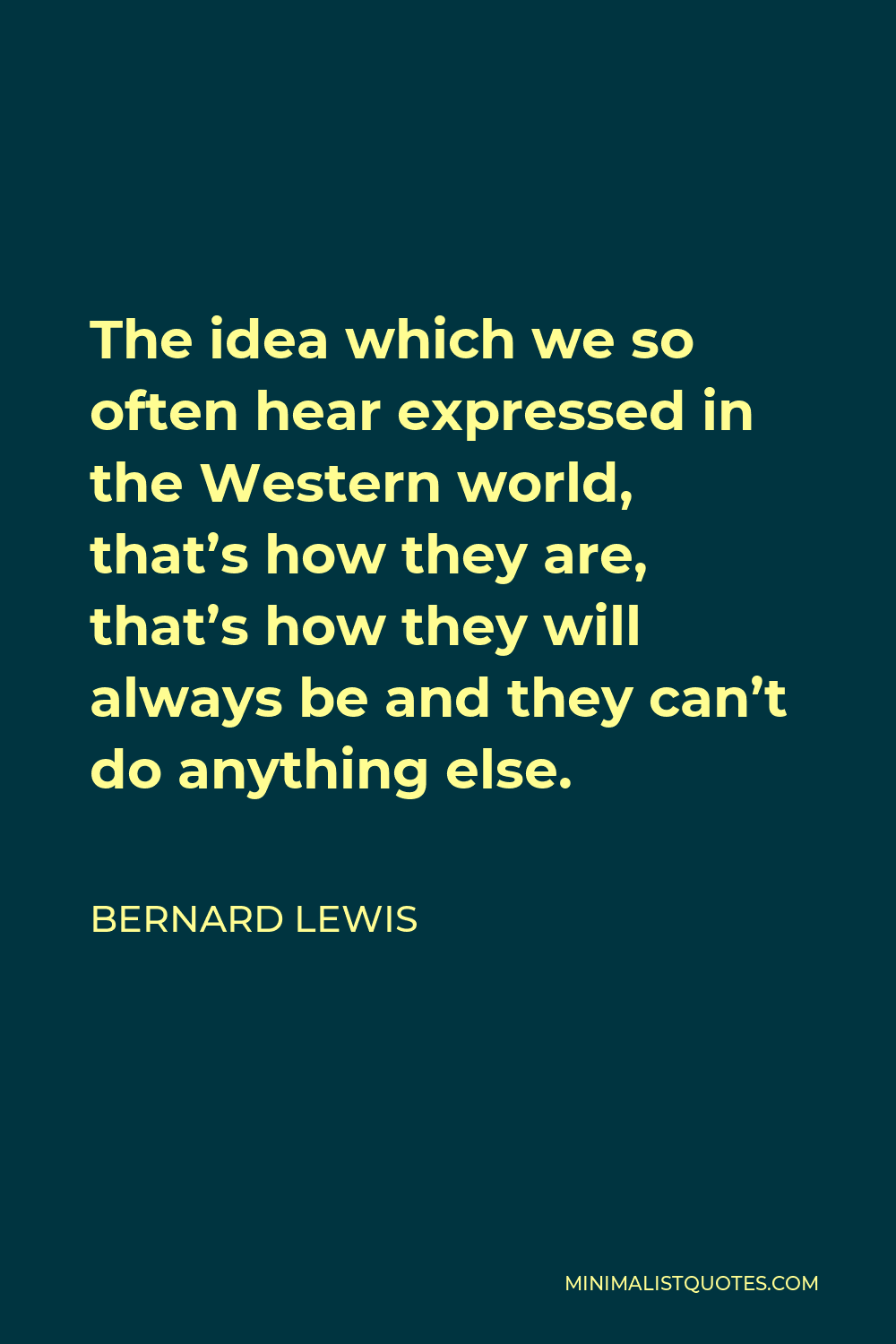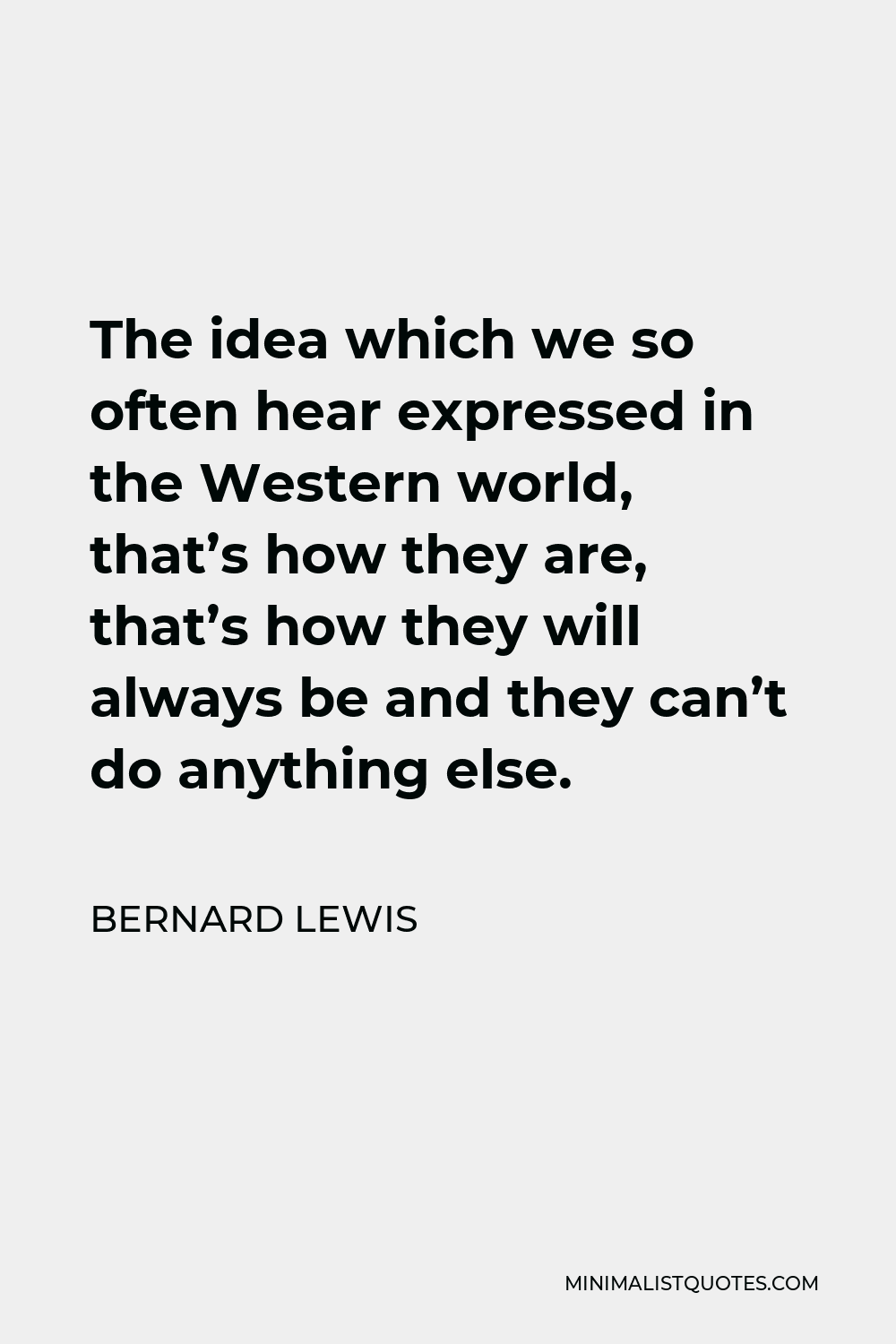Muslims are very keenly aware of the history of their community, of the history of that relationship between their community and the rest of the world. And they have had this all through the centuries and are very much heightened by modern communications.
BERNARD LEWISThe idea which we so often hear expressed in the Western world, that’s how they are, that’s how they will always be and they can’t do anything else.
More Bernard Lewis Quotes
-





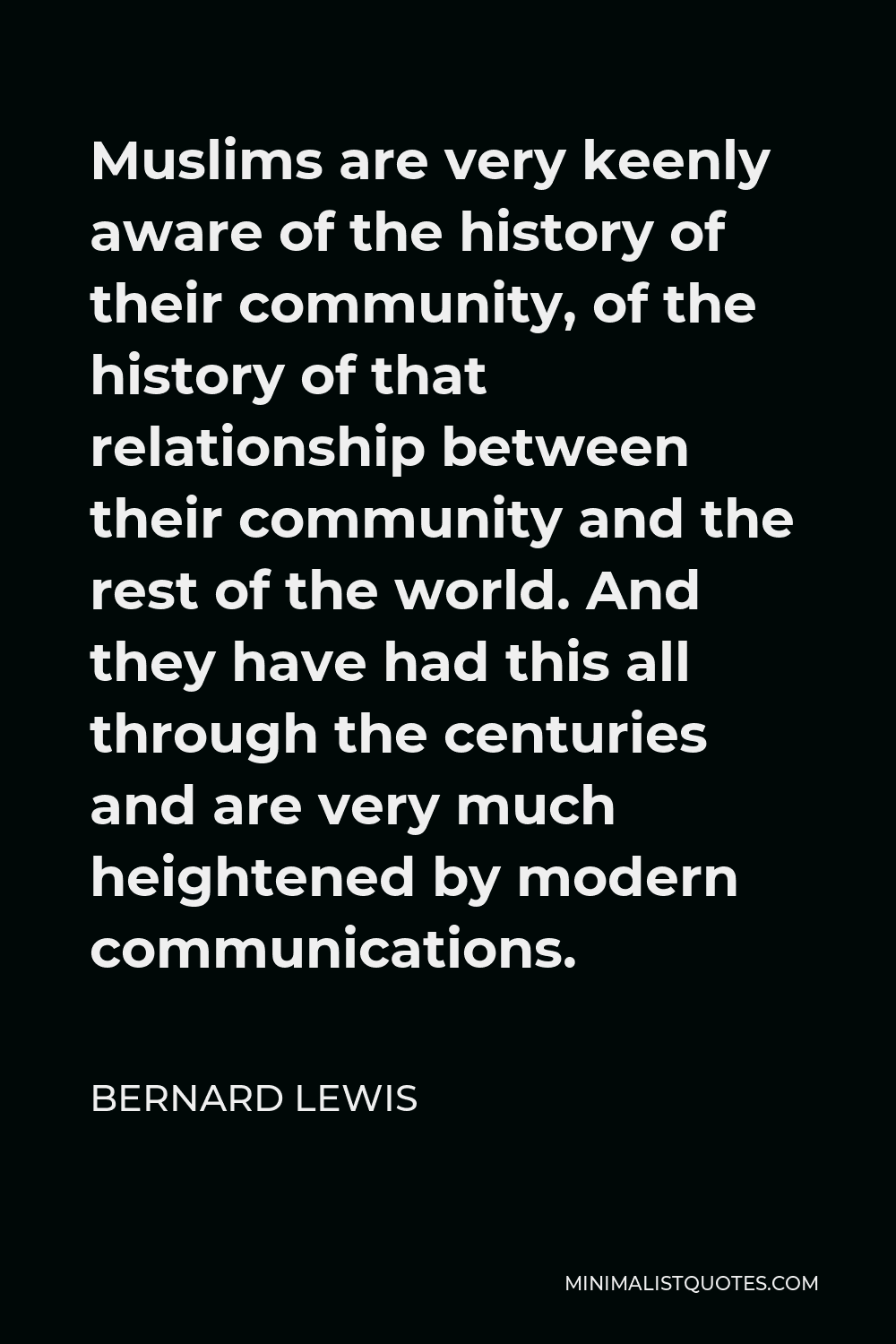
-





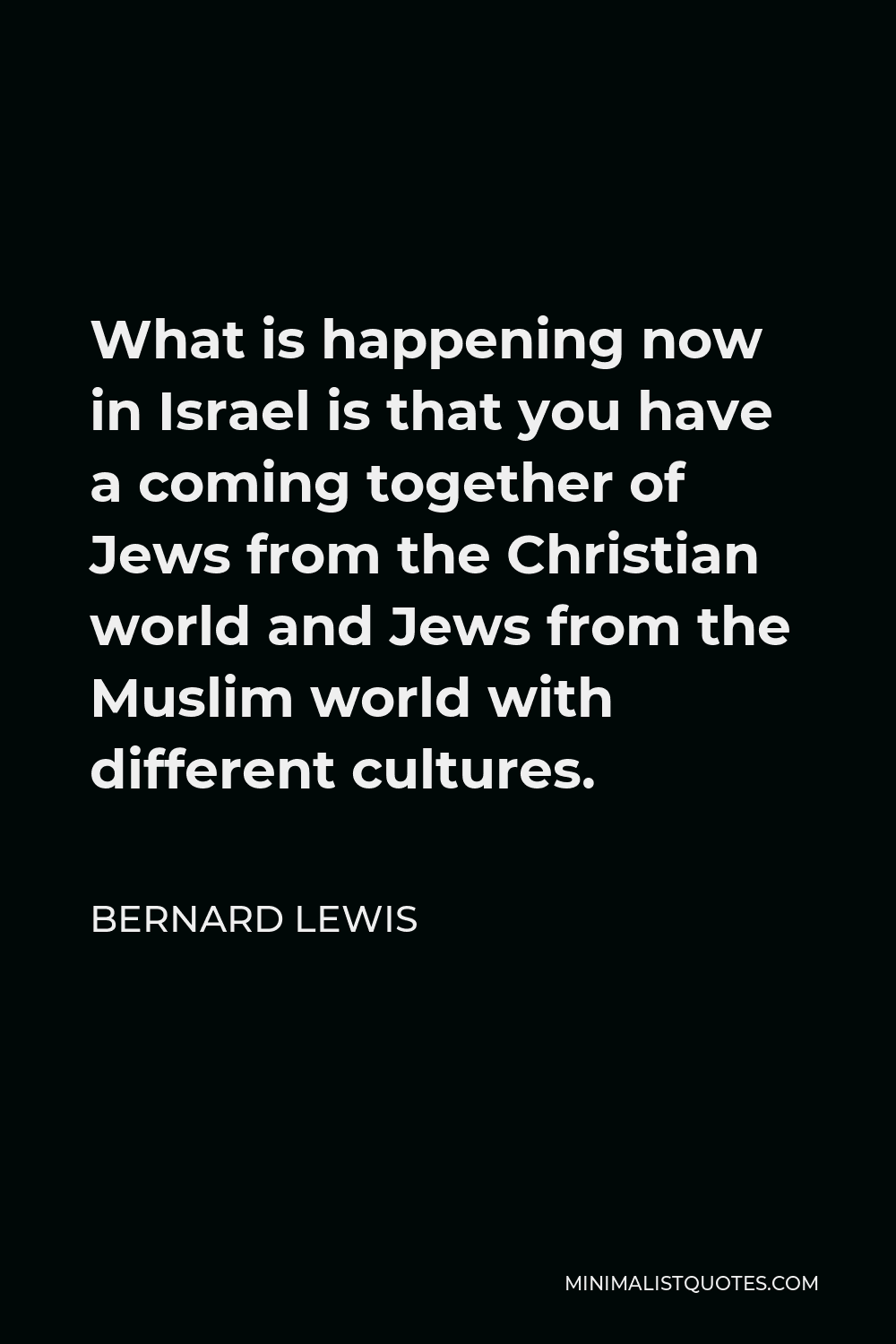
What is happening now in Israel is that you have a coming together of Jews from the Christian world and Jews from the Muslim world with different cultures.
BERNARD LEWIS -





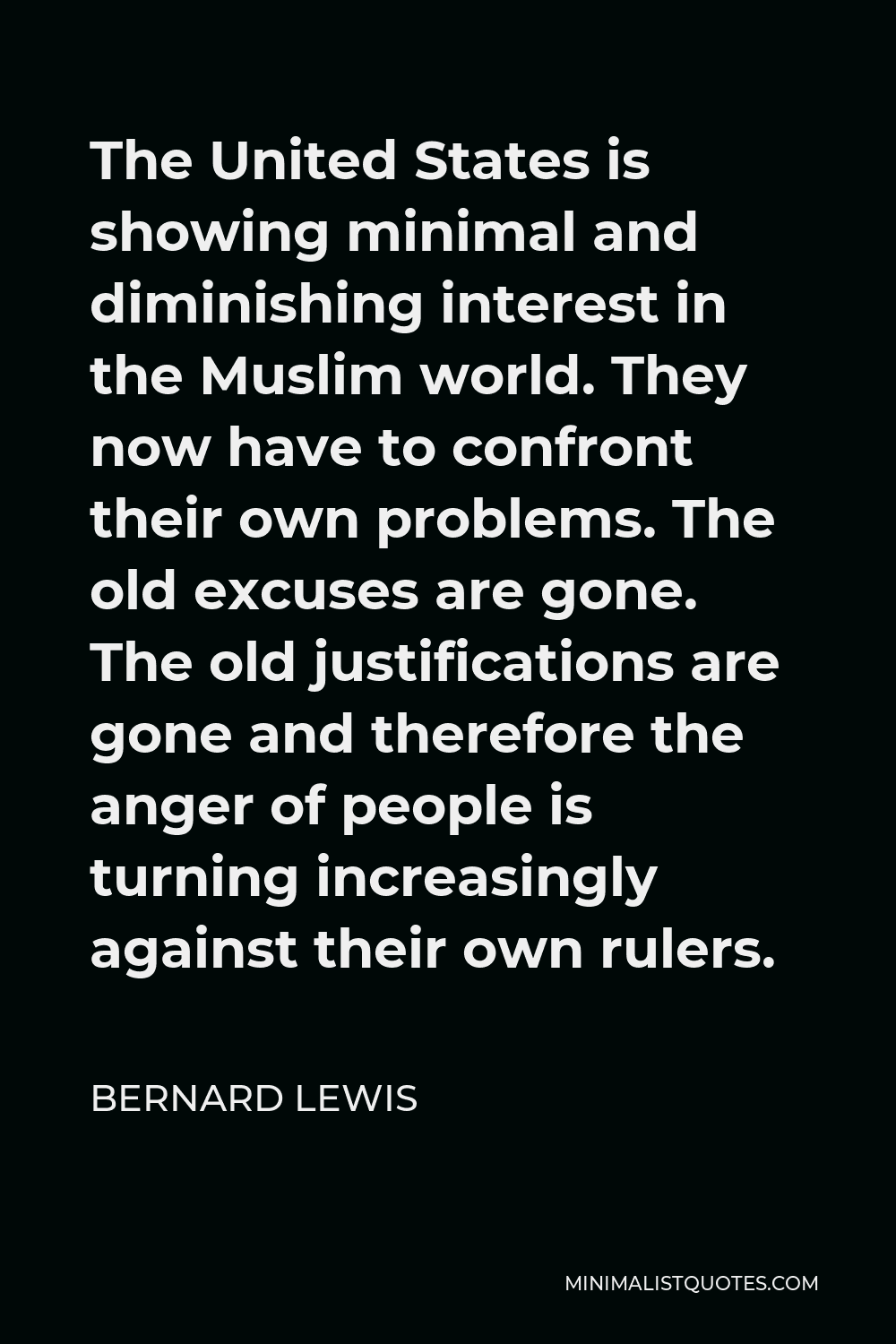
The United States is showing minimal and diminishing interest in the Muslim world. They now have to confront their own problems. The old excuses are gone. The old justifications are gone and therefore the anger of people is turning increasingly against their own rulers.
BERNARD LEWIS -





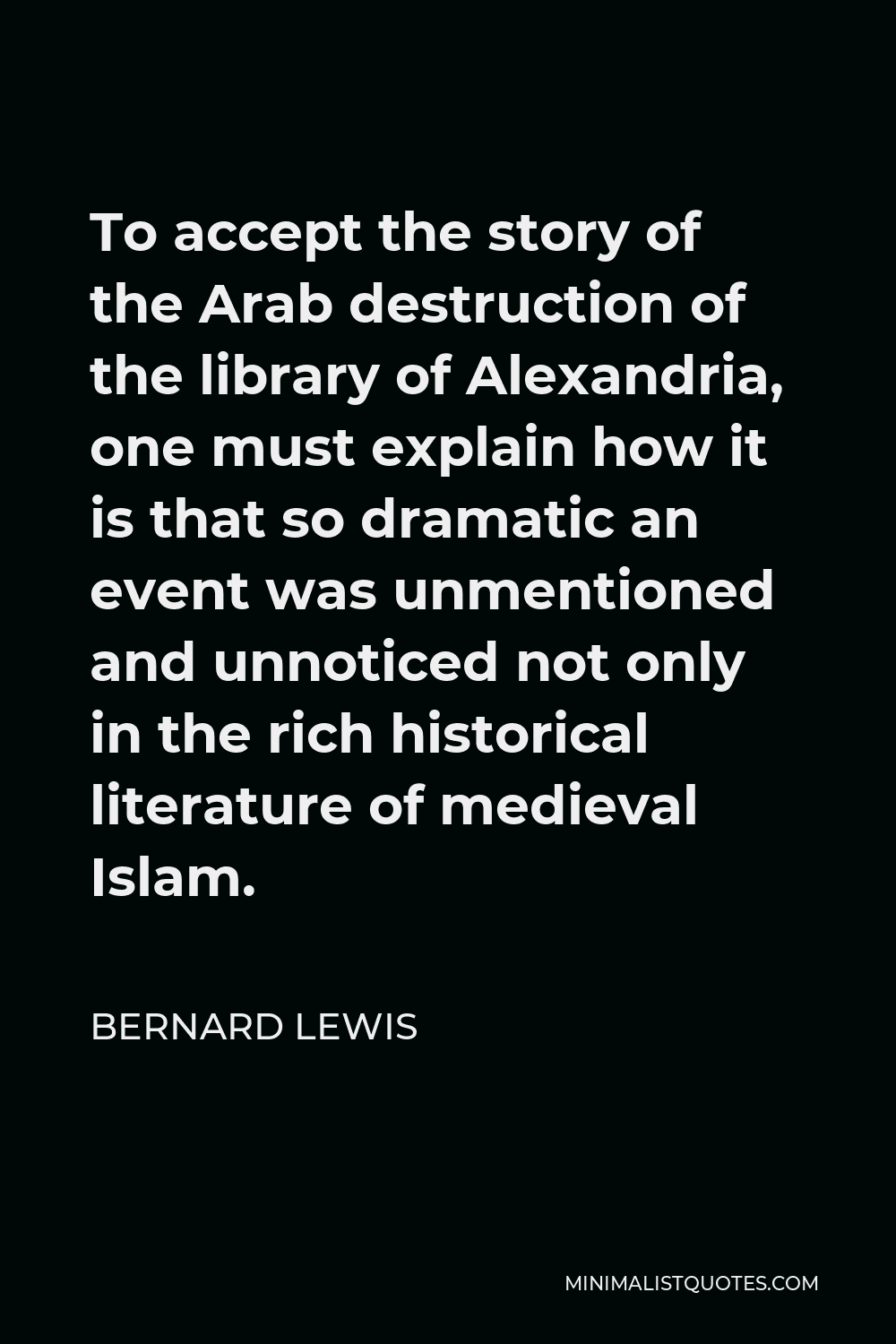
To accept the story of the Arab destruction of the library of Alexandria, one must explain how it is that so dramatic an event was unmentioned and unnoticed not only in the rich historical literature of medieval Islam.
BERNARD LEWIS -





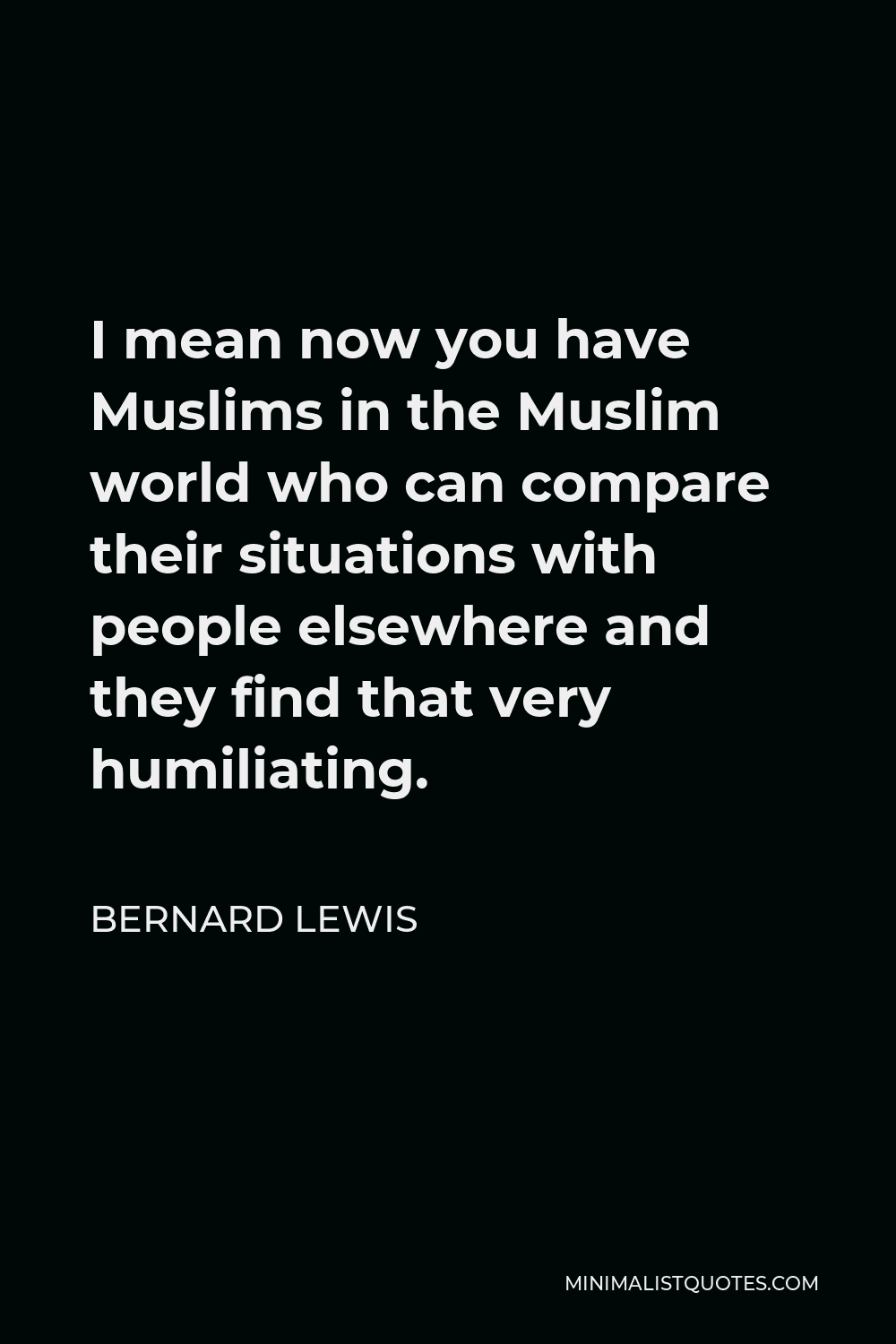
I mean now you have Muslims in the Muslim world who can compare their situations with people elsewhere and they find that very humiliating.
BERNARD LEWIS -





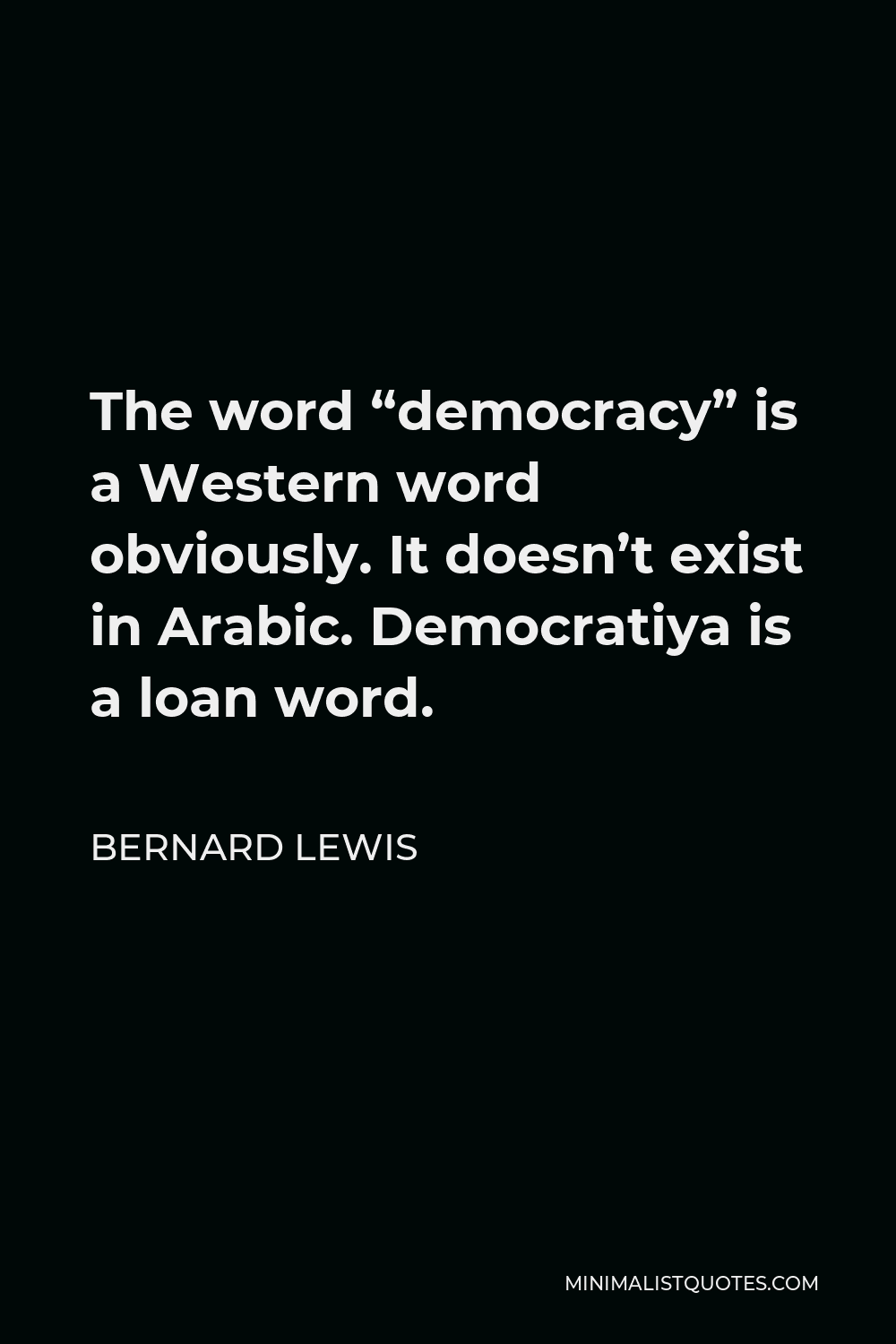
The word “democracy” is a Western word obviously. It doesn’t exist in Arabic. Democratiya is a loan word.
BERNARD LEWIS -





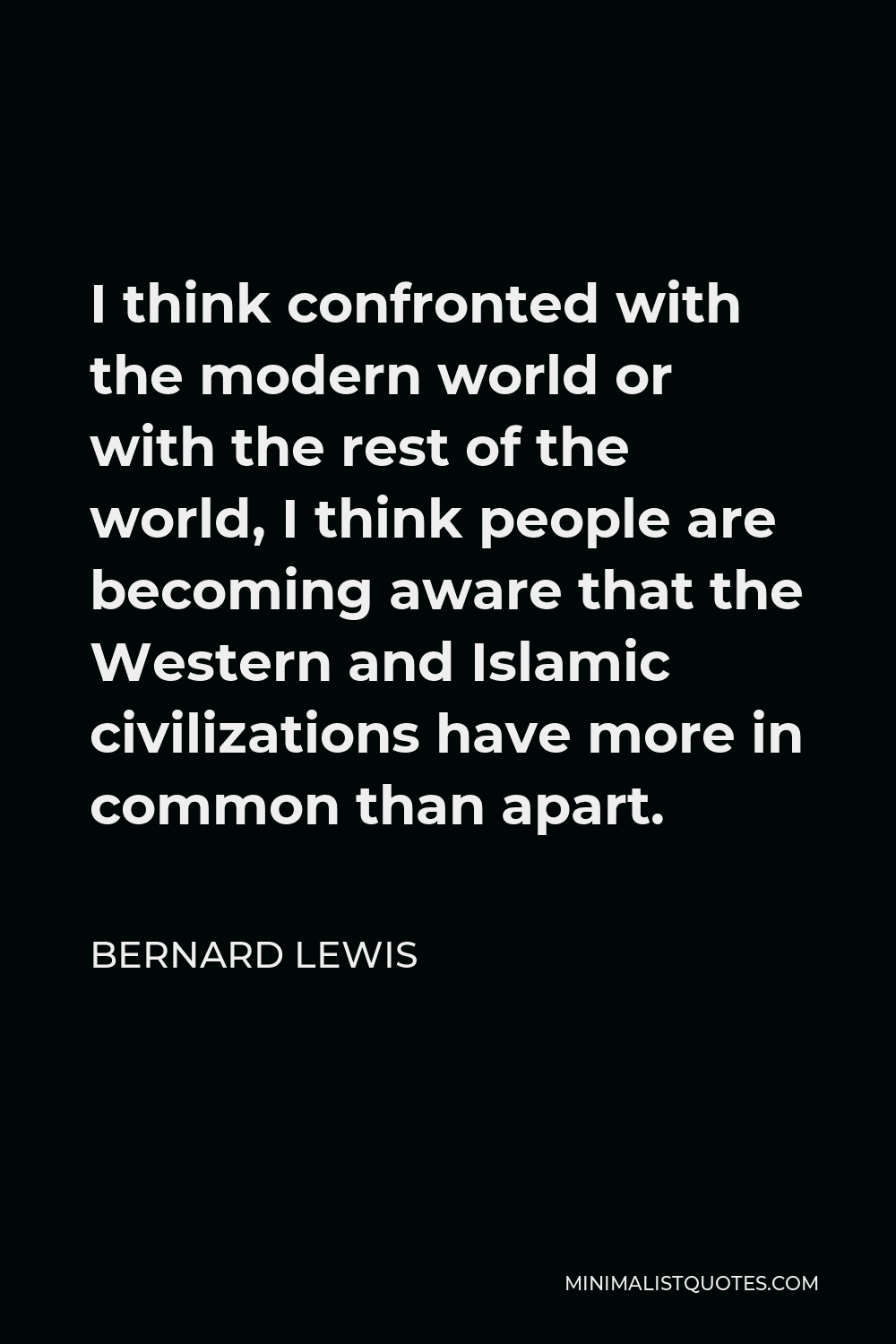
I think confronted with the modern world or with the rest of the world, I think people are becoming aware that the Western and Islamic civilizations have more in common than apart.
BERNARD LEWIS -





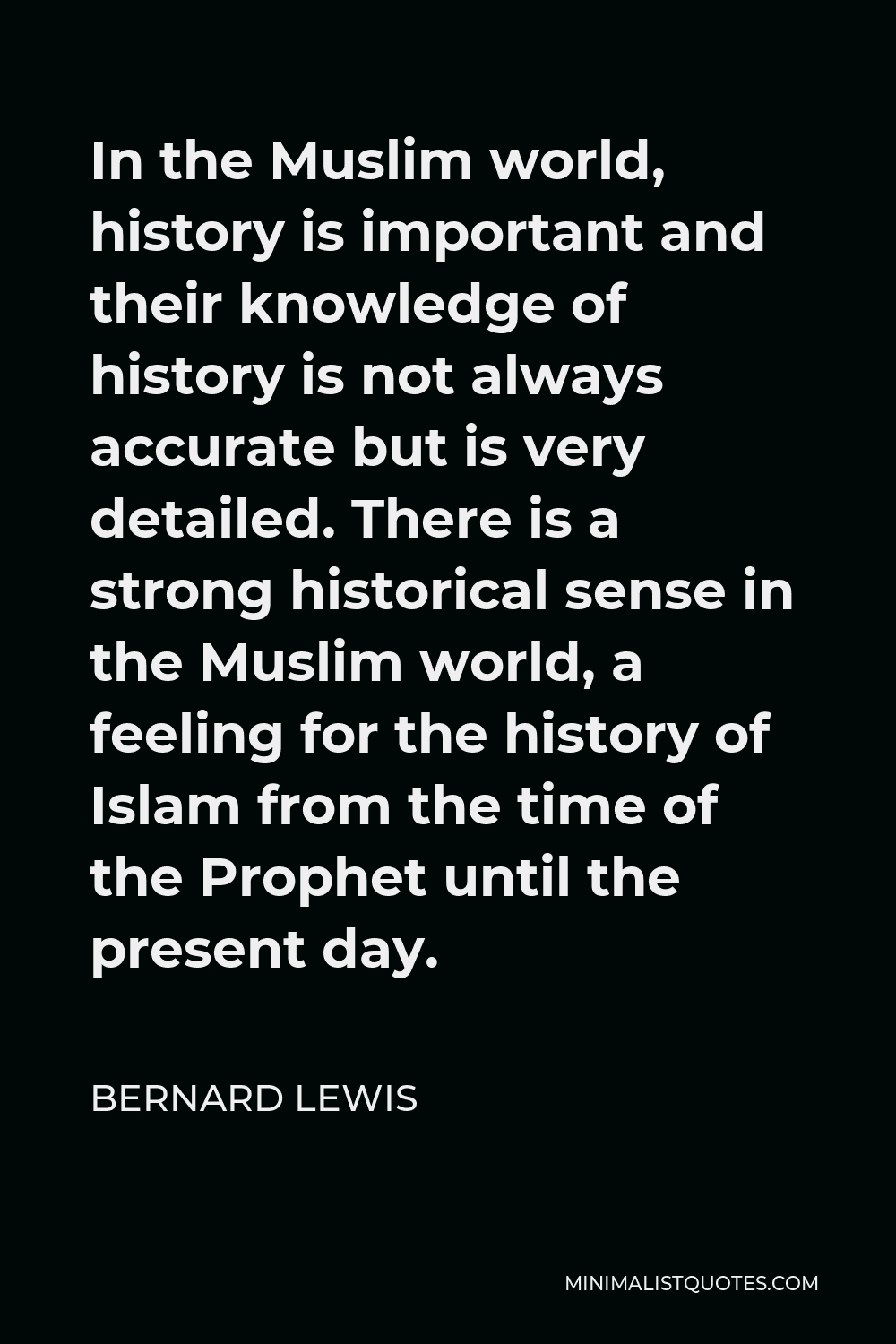
In the Muslim world, history is important and their knowledge of history is not always accurate but is very detailed. There is a strong historical sense in the Muslim world, a feeling for the history of Islam from the time of the Prophet until the present day.
BERNARD LEWIS -





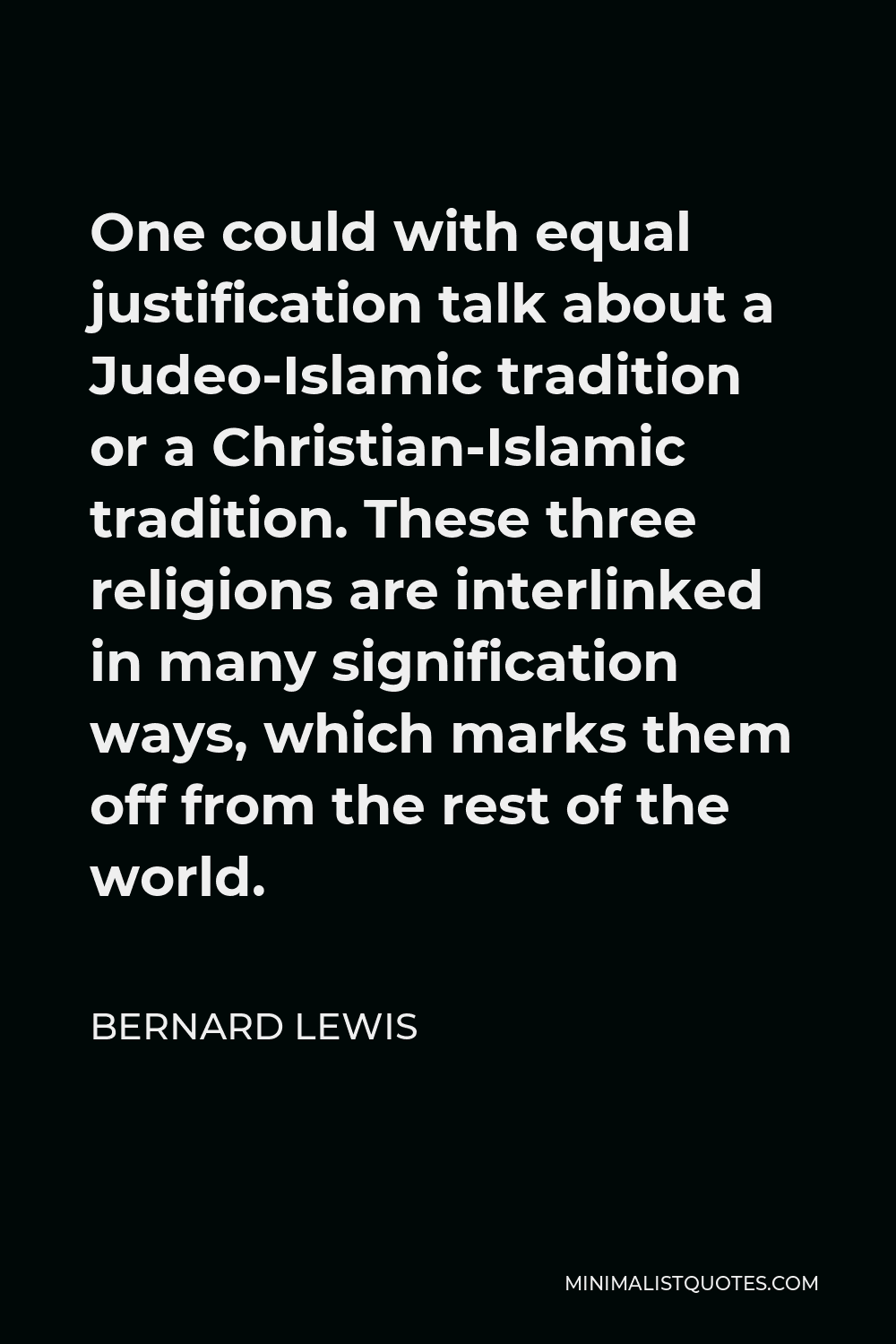
One could with equal justification talk about a Judeo-Islamic tradition or a Christian-Islamic tradition. These three religions are interlinked in many signification ways, which marks them off from the rest of the world.
BERNARD LEWIS -





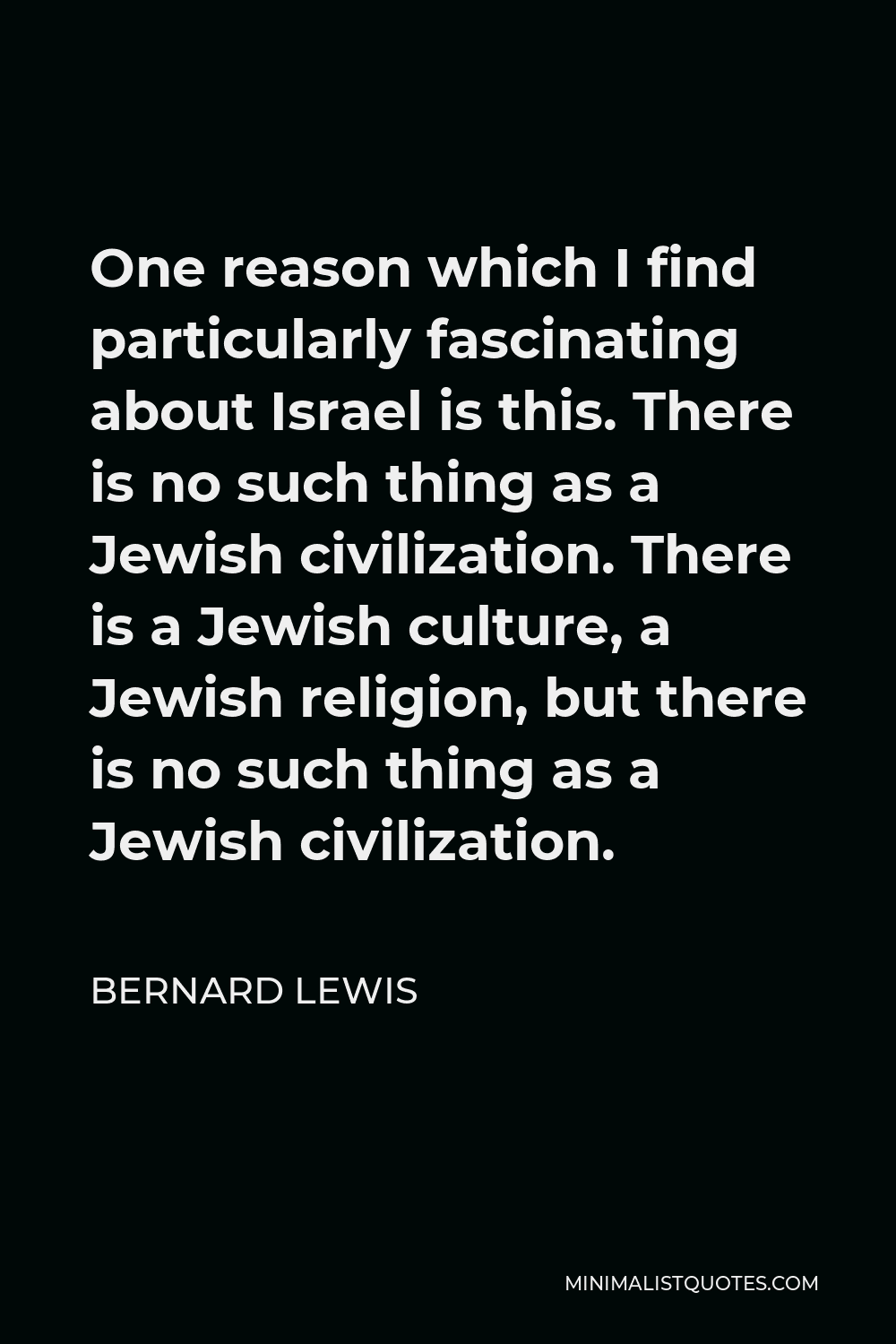
One reason which I find particularly fascinating about Israel is this. There is no such thing as a Jewish civilization. There is a Jewish culture, a Jewish religion, but there is no such thing as a Jewish civilization.
BERNARD LEWIS -





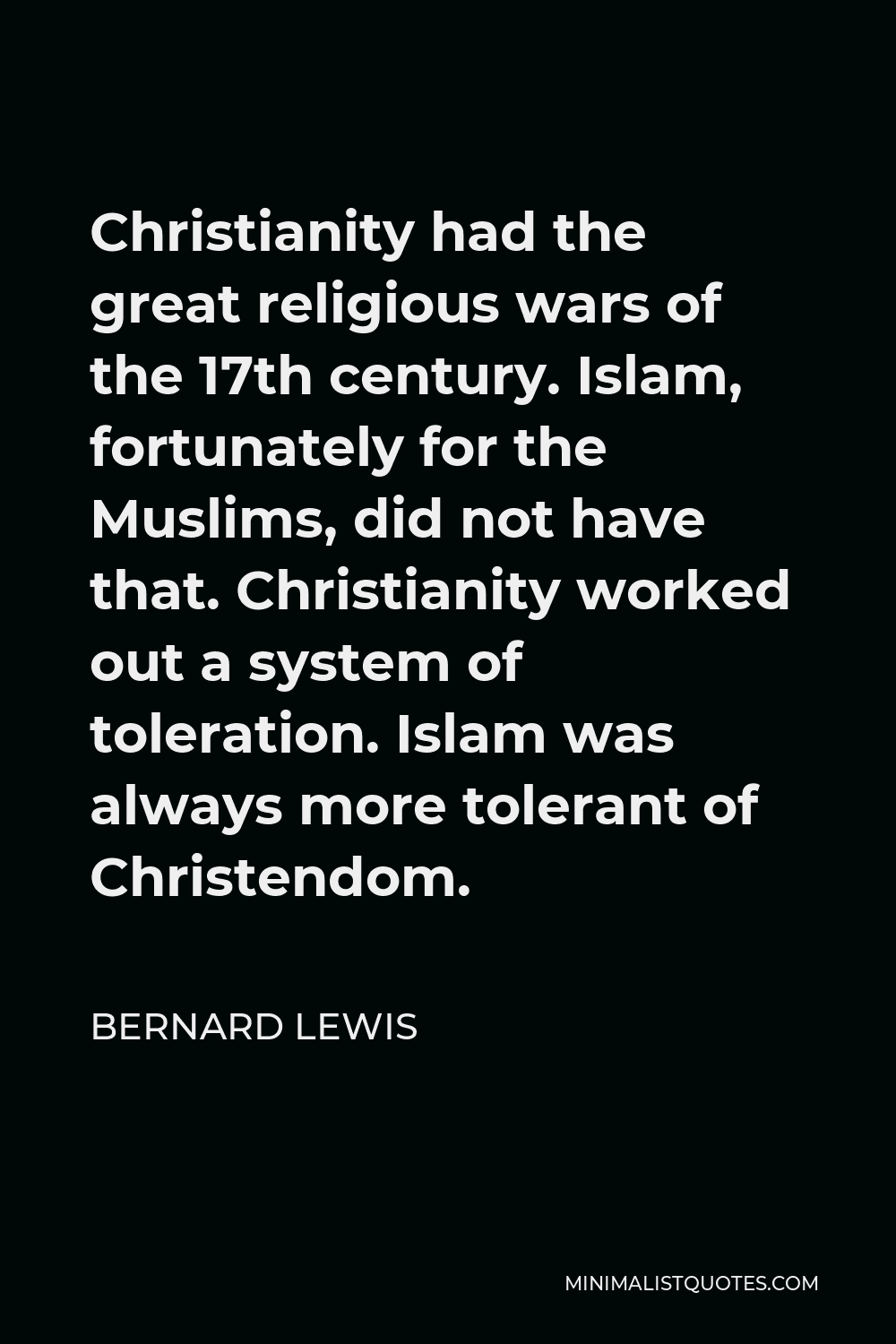
Christianity had the great religious wars of the 17th century. Islam, fortunately for the Muslims, did not have that. Christianity worked out a system of toleration. Islam was always more tolerant of Christendom.
BERNARD LEWIS -





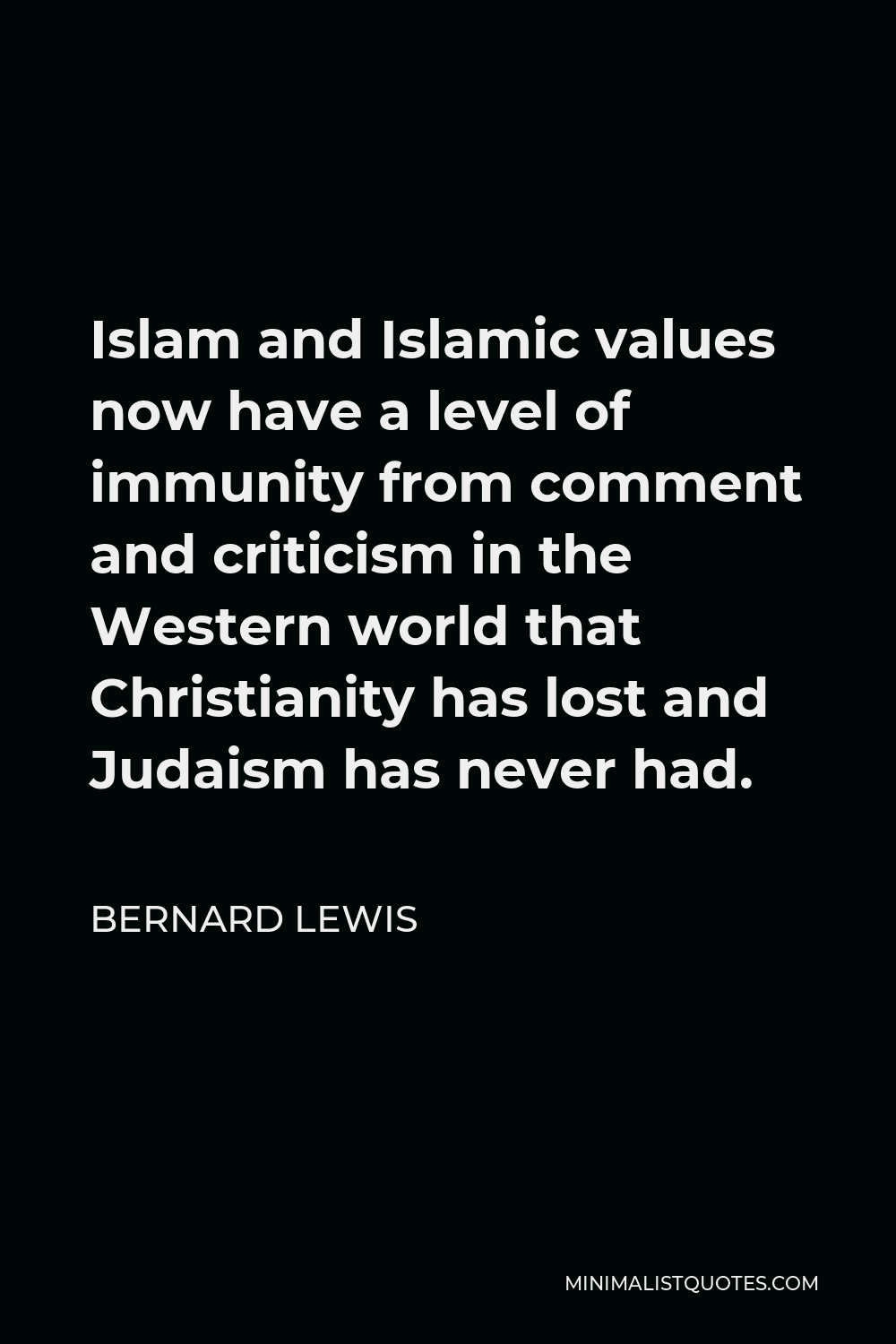
Islam and Islamic values now have a level of immunity from comment and criticism in the Western world that Christianity has lost and Judaism has never had.
BERNARD LEWIS -





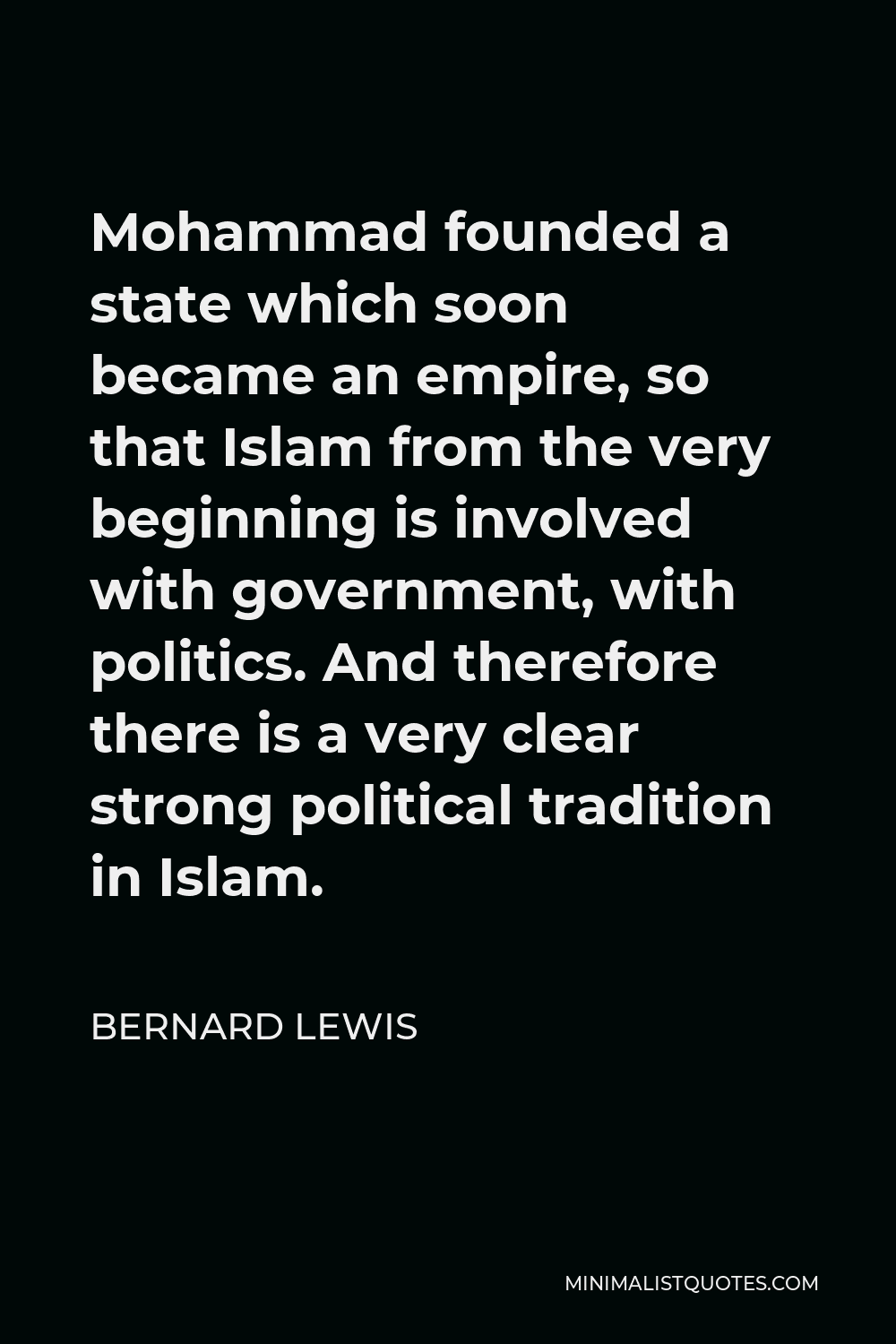
Mohammad founded a state which soon became an empire, so that Islam from the very beginning is involved with government, with politics. And therefore there is a very clear strong political tradition in Islam.
BERNARD LEWIS -





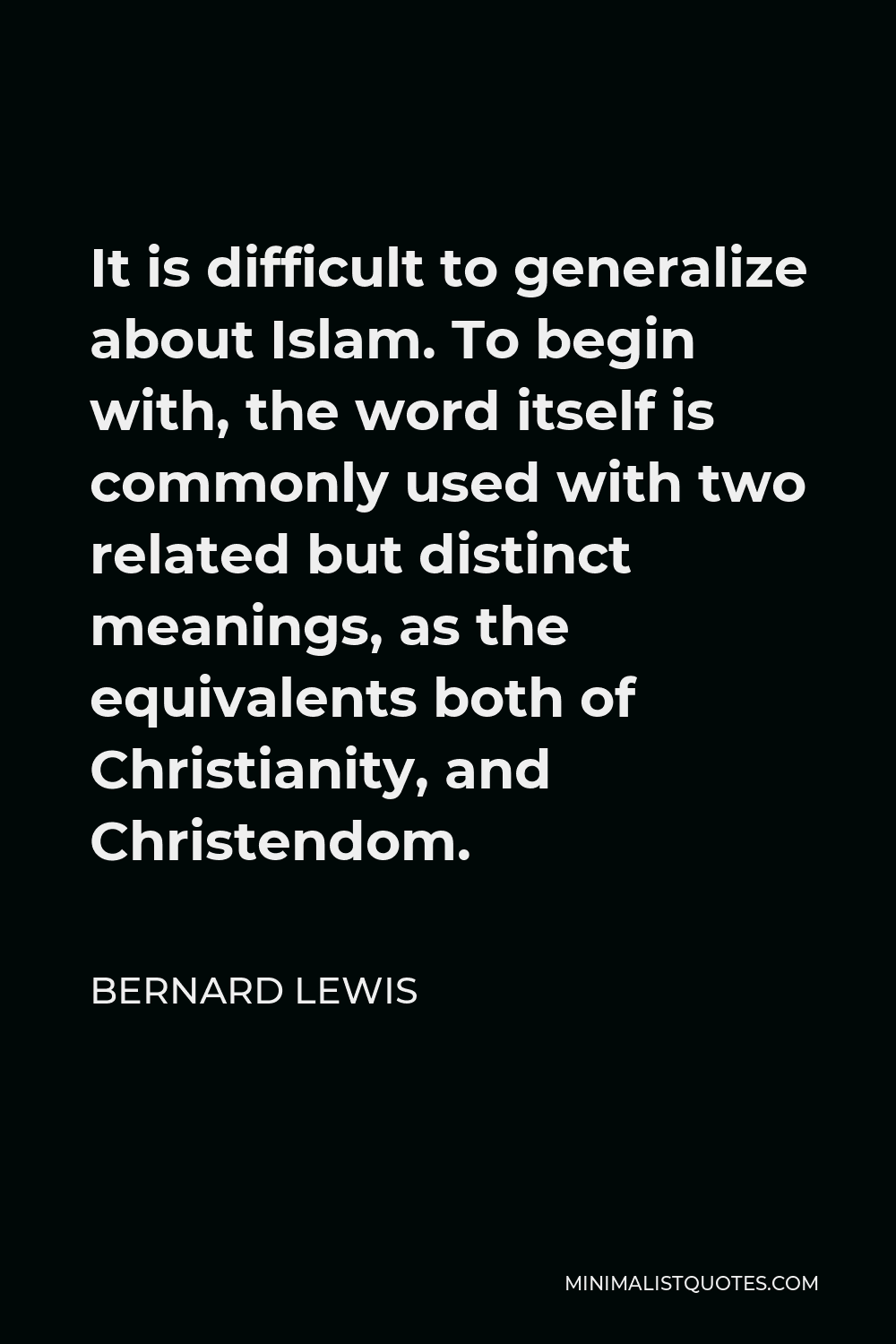
It is difficult to generalize about Islam. To begin with, the word itself is commonly used with two related but distinct meanings, as the equivalents both of Christianity, and Christendom.
BERNARD LEWIS -





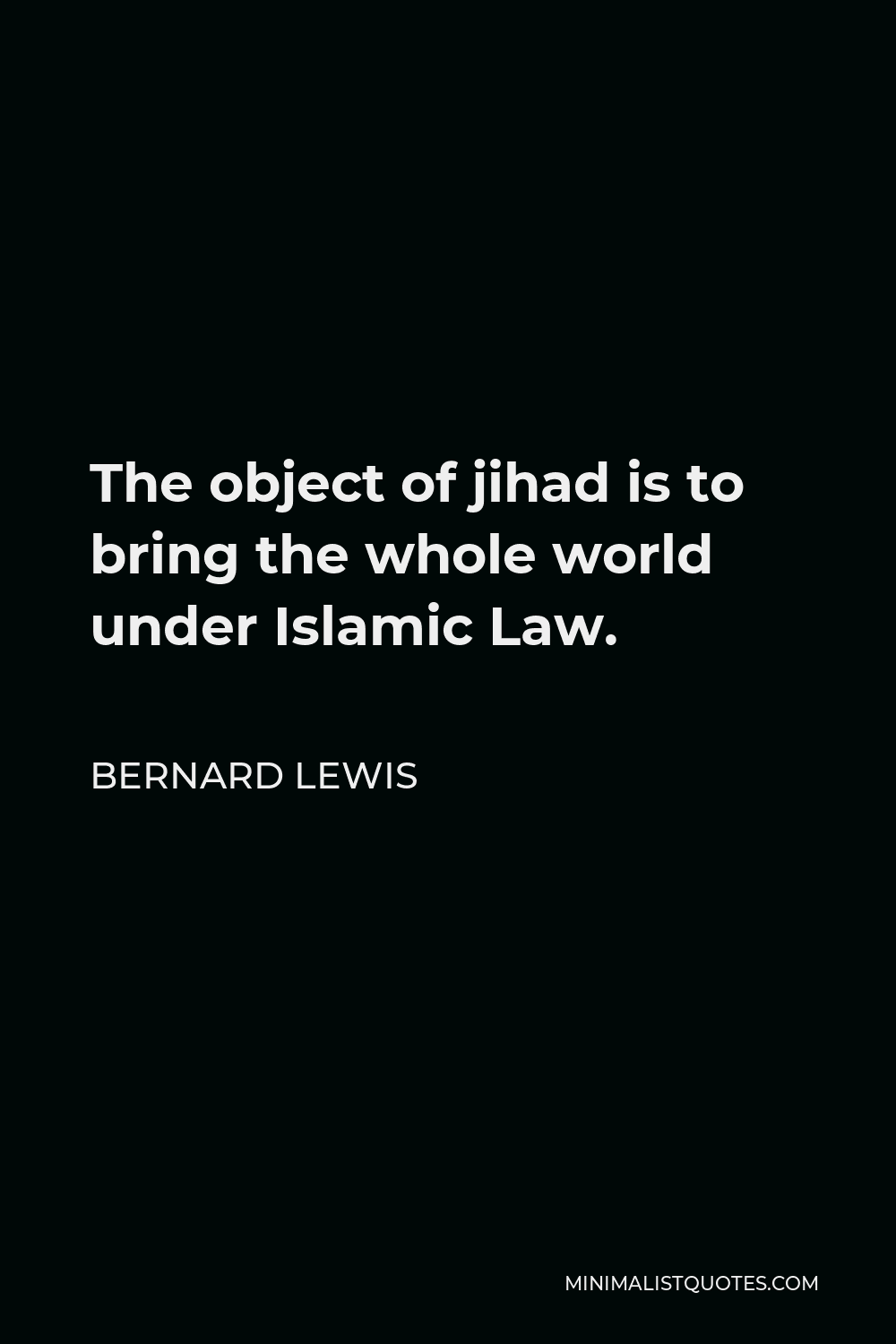
The object of jihad is to bring the whole world under Islamic Law.
BERNARD LEWIS -





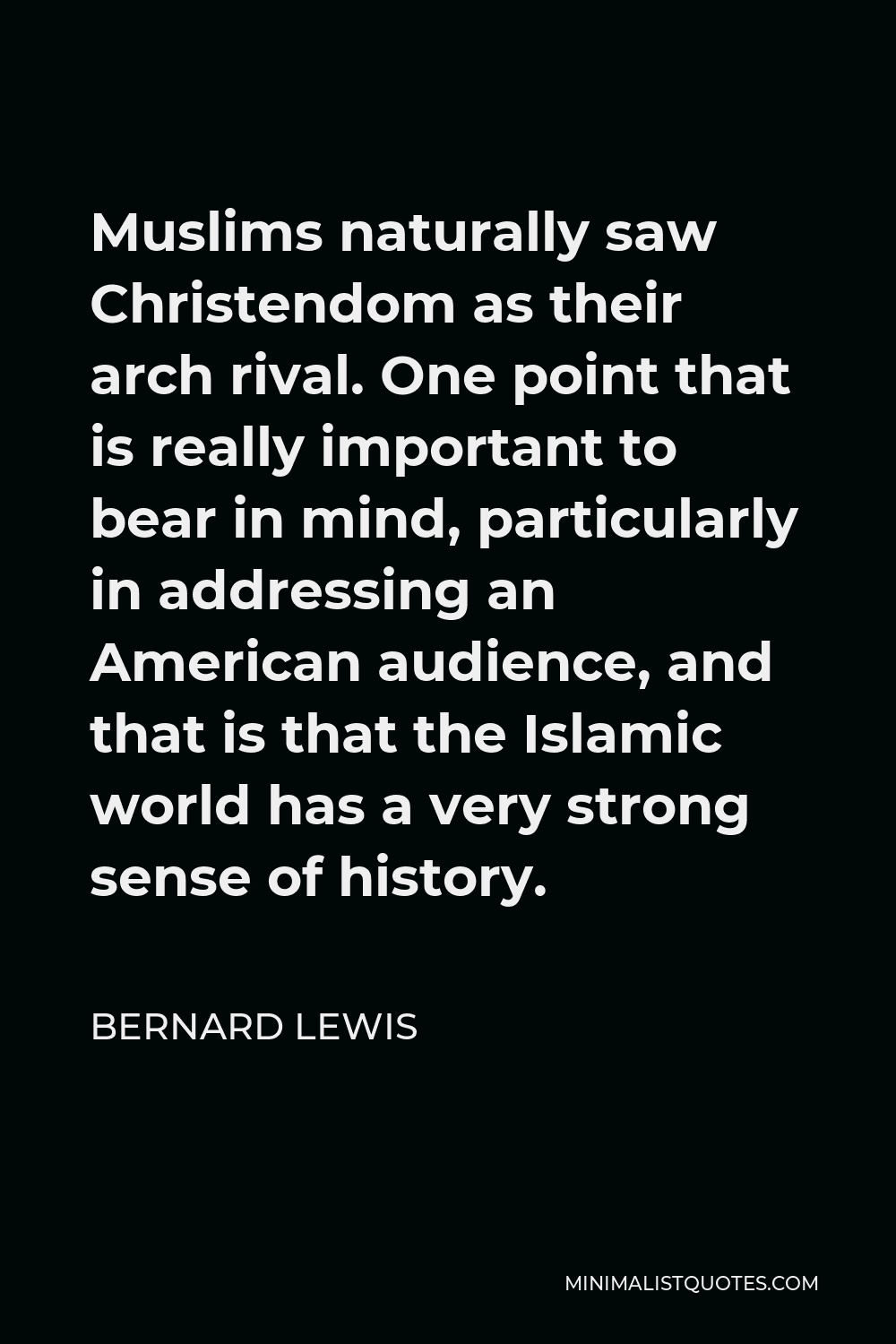
Muslims naturally saw Christendom as their arch rival. One point that is really important to bear in mind, particularly in addressing an American audience, and that is that the Islamic world has a very strong sense of history.
BERNARD LEWIS

